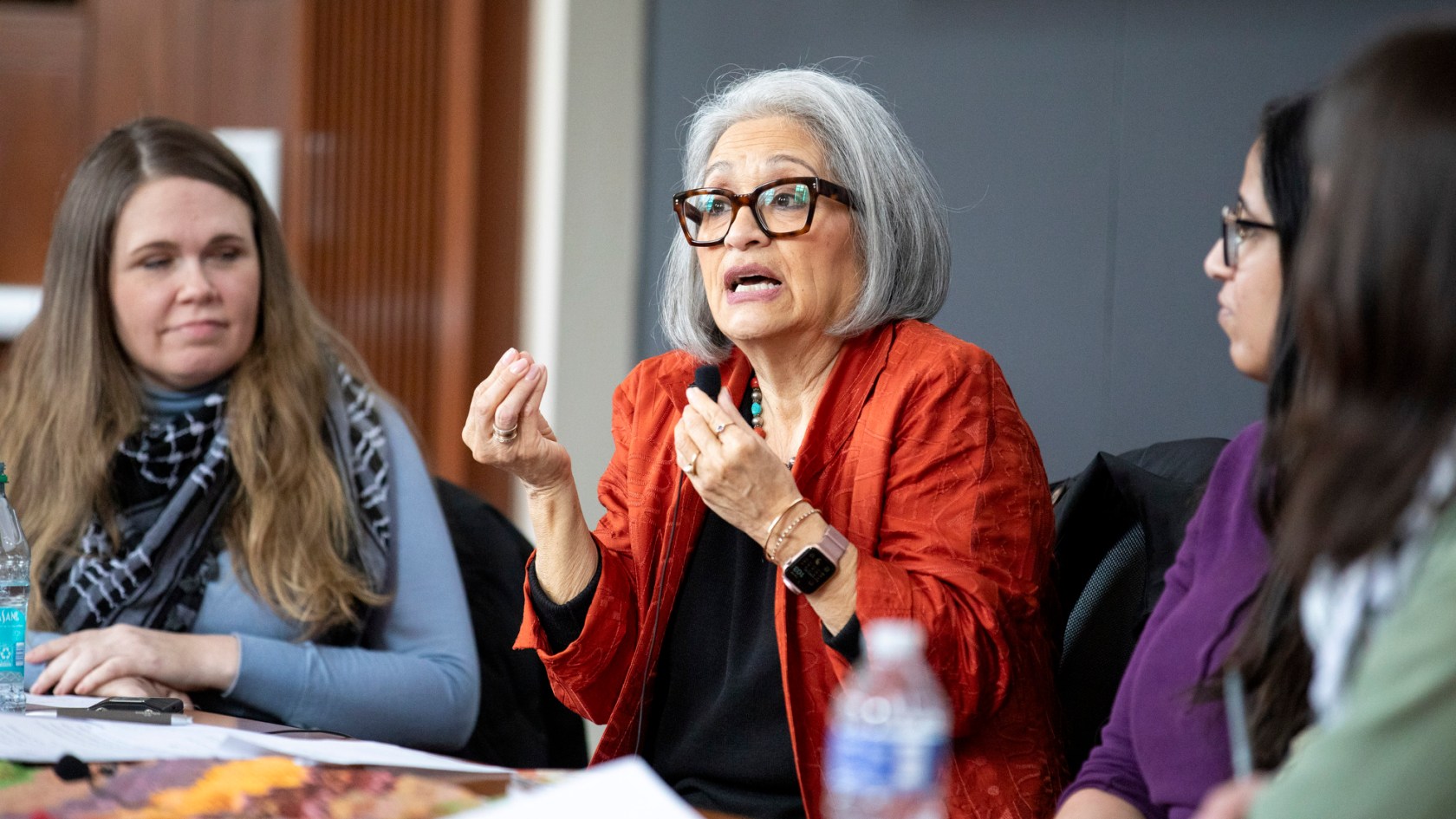Leveraging social capital to defend worthy causes, people in need of representation
Legal scholar and Law School grad returns for student panel

Margaret Montoya, J.D. ’78.
Veasey Conway/Harvard Staff Photographer
Law school provides job security with high earning potential, legal scholar Margaret Montoya, J.D. ’78, said during a March 27 student panel at Harvard Law School. But it also gives students cross-functional skills, social capital, and the chance to work for the greater good.
Montoya, the first Latina to be accepted to Harvard Law School, urged the students to give back by engaging with communities in need of legal representation, finding worthy causes to defend, and advocating for democracy.
“I was asked a question just a moment ago, ‘Why would you return to Harvard?’” said Montoya. “I return for you … I would hope that you go out and change the world. You can use the social capital offered by a Harvard degree … It is a certificate that’s worth a lot. Use it. Come back here. And help others.”
“You can use the social capital offered by a Harvard degree … It is a certificate that’s worth a lot. Use it. Come back here. And help others.”
Margaret Montoya, J.D. ’78,
A native New Mexican, Montoya, now professor emerita, has been at the University of New Mexico Law School since 1992. She has taught courses in constitutional rights, torts, contracts, clinical law, and employment law, and has written about race, ethnicity, gender, culture, and language.
After graduating from HLS, Montoya was awarded Harvard University’s Frederick Sheldon Traveling Fellowship, which allowed her to travel through Europe and Asia. Over the years, she has often returned to campus to meet and talk with students about how to make the most of their legal educations.
During her talk, Montoya compared her experience as a law student in the 1970s, when she was the only Latina student in the HLS classrooms, to that of students today.
“When I look at you, the demography, the social geography is very different,” said Montoya. “I arrived as a child from a low-income family … This is a place that teaches you about power. That is something that is worth experiencing because in order to change the society we have to understand power.”
Montoya asked student panelists what they felt were the biggest gaps in their legal education. Many responded that their courses sometimes lacked perspective on how the law affects the lives of average Americans, skipping over issues of race, social class, politics, and history.
“There’s a lot missing in the education of law students. First and foremost, it’s how the law impacts real people,” said Liz Ross, J.D. ’21 and a Ph.D. candidate in history. “That was probably the biggest gap that I saw when I was here … I think empathy is missing in legal education.”
When asked by Montoya how they enhanced their legal education, panelists underscored the importance of working with like-minded people by forming study or reading groups, getting involved with student organizations, and bringing new voices and perspectives to classrooms.
Montoya asked students to use their law degrees to help vulnerable communities, defend social and racial progress, and protect democracy when it’s threatened by authoritarian forces. A law degree offers tools to become guardians of democracy, she said.
“Harvard transfers social capital to those of us who are here and who graduate,” Montoya said during an interview after her talk. “We can turn that social capital to become stewards of democracy. We can name ourselves as being on the side of justice. Harvard Law School gives us the social capital to be able use different tools to change the status quo.”




